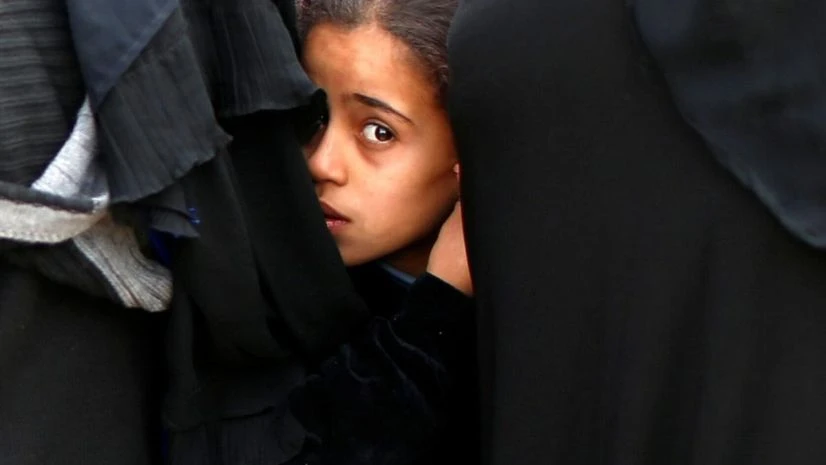Iraq is on the brink of a significant legislative shift that could lower the legal marriage age from 18 to nine, potentially allowing men to marry young girls. The move, reported The Telegraph, has sparked widespread international condemnation, as it threatens to strip Iraqi women of their fundamental rights, including divorce, child custody, and inheritance.
Iraq’s Parliament, largely dominated by a coalition of conservative Shia Muslim parties, is preparing to vote on changes to the ‘personal status law’, or Law 188. Introduced in 1959, this law was once one of the Middle East’s most progressive, protecting the rights of Iraqi families regardless of religious background.
The amendment aims to revoke women’s rights to divorce, inheritance, and child custody, aligning with a strict interpretation of Islamic law that, according to supporters, protects young girls from ‘immoral relationships’. However, critics warn that the amendment could legalise child marriages, exposing young girls to increased abuse risks and depriving them of education and employment opportunities.
A decisive moment for Iraq’s social fabric
Iraq’s ruling Shia coalition has previously attempted to amend the personal status law, facing opposition in 2014 and 2017 from women’s rights advocates. But now, with a stronger majority, the coalition is closer than ever to passing these changes, says Renad Mansour, a senior research fellow at Chatham House.
“It’s the closest it’s ever been,” Mansour told The Telegraph. He highlighted that a core group within the Shia parties is pushing this amendment to “consolidate their power” and regain ideological legitimacy.
More From This Section
“Stressing the religious side is a way for them to try and regain some of the ideological legitimacy that has been waning over the last few years,” he said.
The proposed amendment could be put to a vote at any moment, fuelling concern among human rights activists and Iraqis who see it as a direct assault on women’s rights and a shift toward theocratic governance. 'Child marriage' bill stirs outrage in Iraq
Women’s rights advocates sound alarm
For Iraqi women and activists, the amendment jeopardises decades of progress. “The amendment would not just undermine these rights,” said Sarah Sanbar, Iraq researcher at Human Rights Watch. “It would erase them.”
Athraa Al-Hassan, an international human rights adviser and director of Model Iraqi Woman, expressed concerns that Iraq may be adopting a governance model similar to the religious rule seen in Iran and Afghanistan.
“This is very dangerous,” Al-Hassan said, adding that judiciary interference would violate Iraq’s constitution.
“Iraq is a civilised civil state that cannot be otherwise. The first female minister in the Arab countries was Iraqi, and the first female judge was Iraqi. We aspire to progress, not regress,” she added.
Impact on Iraq’s poorest and most vulnerable
Iraq already faces high rates of child marriage. According to the United Nations Children’s Fund (Unicef), around 28 per cent of women in Iraq are married before the age of 18. A loophole in the current personal status law allows religious leaders to officiate underage marriages, a practice common in impoverished Shia communities. These marriages are often unregistered, depriving girls and their children of basic rights and protections.
The amendment seeks to legitimise such marriages, placing young girls at greater risk of sexual violence and denying them essential rights. Human Rights Watch warns that legalising these unions could create a generation of women trapped in poverty and abusive situations without a legal way out.
Growing restrictions on women’s rights in Iraq
Iraq’s Parliament has recently passed other measures limiting women’s rights. In April, lawmakers criminalised same-sex relationships, with punishments of up to 15 years in prison. Last year, Iraqi media was ordered to replace ‘homosexuality’ with ‘sexual deviance’, and even the word ‘gender’ was banned.
The latest amendment proposal has sparked outrage, with activists condemning it as an attempt to ‘legalise child rape’. The Coalition 188, a group of Iraqi women activists, held protests across Baghdad and other cities in August to express their opposition.
Sectarian divide to deepen with law amendment
Amending Law 188 could deepen Iraq’s sectarian divides, with critics arguing it will reinforce religious identities at the expense of national unity. “It would bring everything back to the sect,” Mansour said, adding, “But many Iraqis don’t want to be defined politically by their sect. They want to be defined by their government and their state.”
If passed, the amendments would allow Muslim citizens to choose between the current secular personal status law or religious law, based on their sect, to govern family matters. However, in cases of dispute, the husband’s sect would have precedence; a provision that activists argue diminishes protections for women and undermines equality.
“This is going to remove a lot of protections for women,” said Sanbar, voicing concern that the amendment could worsen socioeconomic inequalities among women. “It will undermine the principle of equality before the law.”

)